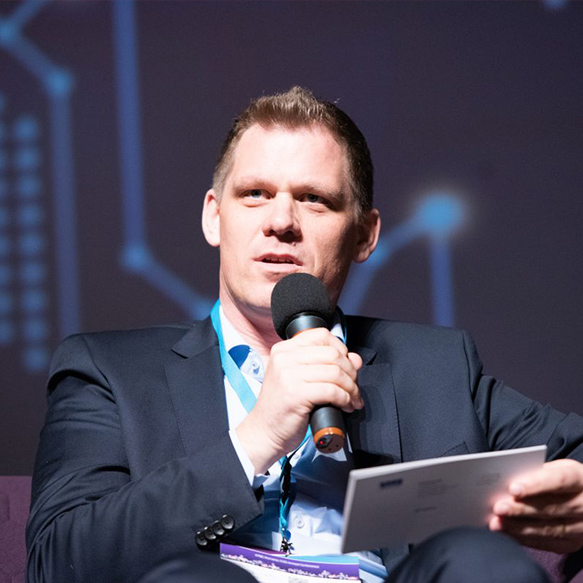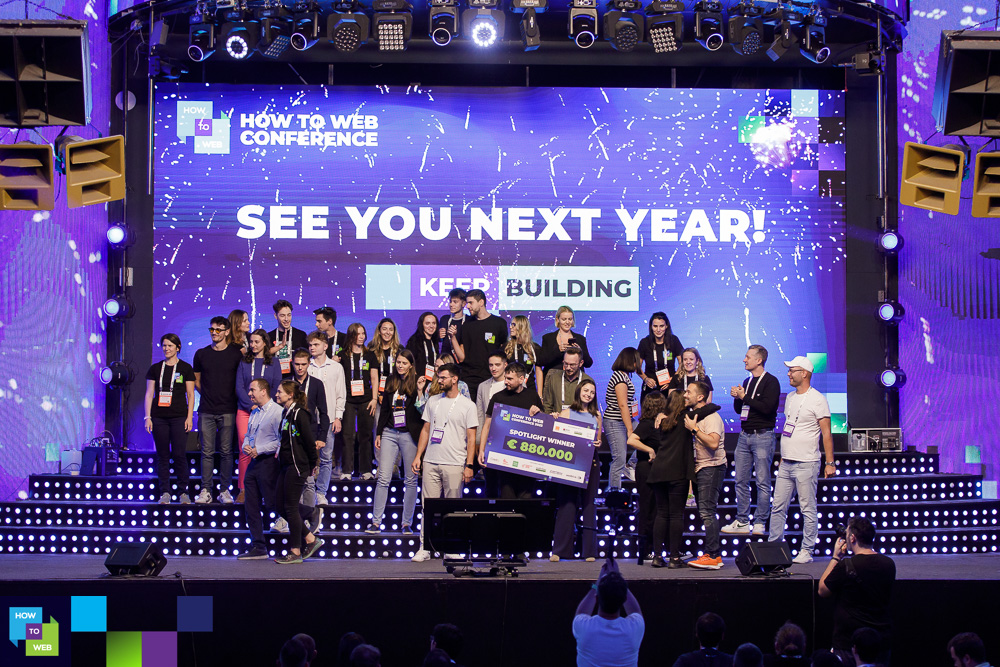23 October, 2019

René Schöb is Partner and Head of Tax & Legal at KPMG Romania. He helps companies to create value by expanding in new territories and embracing new technologies.
Adding value to the tech startup scene by enabling technology and change as well as combining solutions from Startups with the ones from Corporates, he drives growth by empowering people and making change happen. He is seen as being the Trusted Advisor within the startup ecosystem.
Q1: KPMG is one of the 4 Big Four companies. Why has an audit and consultancy company that has major corporations as clients decided to switch its focus to start-ups too, in their early stages?
Startup companies are fundamental to any economy, even more so than large corporations. They create more jobs, bring in more revenue, and lead in innovation and creativity. Startups and SMEs are the true engine of an economy. KPMG has created several programs to support startups, providing guidance and mentorship to future business leaders in developing their products and strategies, sourcing financing, getting off the ground and following the path to success. We bring added value in the form of our local, regional, and global expertise, helping entrepreneurs understand the market and the industry.
Q2: What can corporations learn from startups and vice versa?
Through their structure and very essence, startups have an agility and potential for innovation and creativity that extend beyond what large corporations can achieve in day-to-day operations. Large organizations work with startups to harness some of the energy of the operational speed,
unconventional approach and creativity applied to the business. Corporates that open their doors to startups may be overwhelmed by their number, but for us it is essential to promote innovation as a key factor for growth.
Q3: You just launched an acceleration program for startups – KPMG Startup Grow Pad, in partnership with Spherik Accelerator. Tell us a little about what a B2B startup can expect from this program? What can its major takeaways be?
The aim of the KPMG Startup Grow Pad is to help startups find the right resources and financing they need to develop and grow. Participants will have access to experienced mentors, who can help them plan the next steps for the development of their businesses, as well as offer assistance in identifying potential customers. They will also be given help in finding and securing financing. A set of objectives will be agreed at the start of the project, and the aim is that, by the end of the program, the business will have gained important knowledge, skills and access to potential investors, and be in a better position to succeed. We’re looking to partner with B2B startups which operate in sectors in which we have expertise and clients: IT and Telecom, Fintech, Real Estate, B2B Professional Services, Legal – Compliance and Regulatory Services, Retail and Consumer Markets, B2B Professional Services, etc. We see a lot of potential of improvement with the technology wave and we want to take advantage of it, together with startups we can align with.
Q4: You are also helping startups by being the intermediary between them and large companies that can benefit from using their products. How do you see the product/market fit in this context?
Corporates that struggle to work with startups risk losing ground and, eventually, becoming irrelevant in this fast-moving high-tech business environment. However, we see a fundamental dilemma: corporates are interested in the startup culture, but have difficulties in embracing new ways of working, while startups fear any interference in their core principles and philosophy and want to remain independent. As a large corporation, we understand the internal structure and hurdles, and as a startup growth program, we understand the need for flexibility, quick-decision making, an unconventional approach, and disrupting creativity. It is difficult to reconcile the two worlds, but we have the trust of both and openness is the first step to success.
Q5: How important is international exposure for a startup? Do you think a startup should go global from the beginning or start small and local and scale up its business? What does it take to go global from local?
Startups can be successful with 20-30 employees and a stable business strategy. Not all companies become unicorns, and most do not. The future belongs to small companies that think global and aim to change the world. But the shortest way to conquering the global market is to dominate the local market. When you are playing for the home team, you have a series of advantages, like knowing the local culture, the language, and the environment; you always know how the system works and how far you can stretch it. So master your local market, then focus on getting to know another culture and conquer new territory.
Meet him at the How to Web Conference 2019 on the 30th & 31st of October! Get your ticket here: https://www.howtoweb.co/buy-tickets/.
You may also like
How to Web 2023 brought together over 2,500 international participants, 60 global speakers, and an investment prize of €880,000 for the best Eastern European startup
René Schöb is Partner and Head of Tax & Legal at KPMG Romania. He helps companies to create value by expanding in new territories and embracing new technologies. Adding value to the tech startup scene by enabling technology and change as well as combining solutions from Startups with the ones from Corporates, he drives growth… Read more »
0Spotlight on Veridion: Redefining the Future of Company Intelligence
René Schöb is Partner and Head of Tax & Legal at KPMG Romania. He helps companies to create value by expanding in new territories and embracing new technologies. Adding value to the tech startup scene by enabling technology and change as well as combining solutions from Startups with the ones from Corporates, he drives growth… Read more »
0


